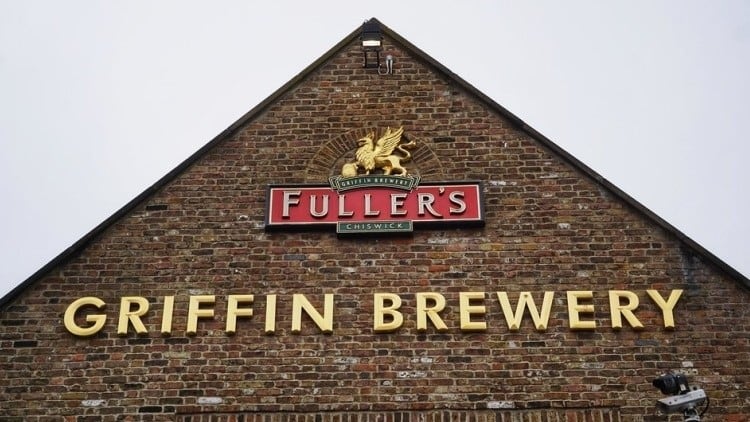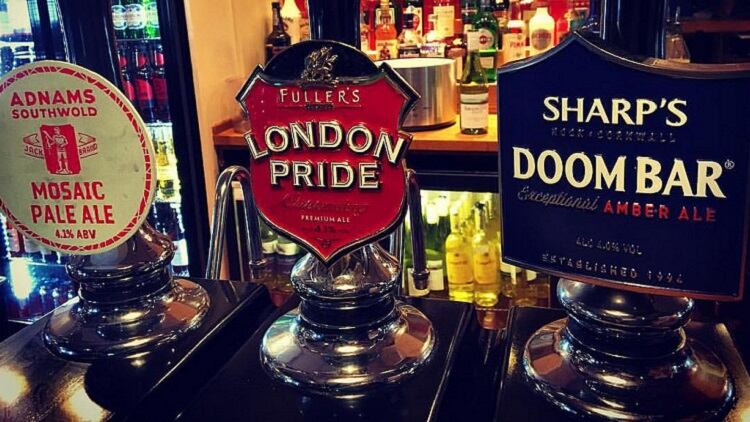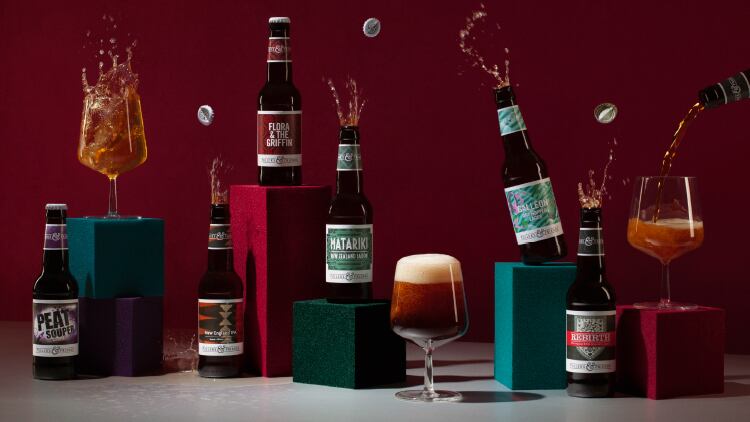The proposed £250m deal includes Fuller’s cider, soft drinks, wine wholesaling and distribution business, as well as its beer and brewing operations.
This means Fuller's historic Griffin brewery and its Cornish Orchards, Dark Star and Nectar Imports brands will also move to Asahi's ownership.
Asahi Europe Limited will receive the beer business's brands, which includes London Pride, as well as the benefits of a licence "on a perpetual, global, exclusive and royalty-free basis".
Asahi will be able to use various Fuller's trademarks to sell Fuller's-branded drinks. However, ownership of the trademarks will remain with Fuller's.
Asahi, under the proposed deal, will act as Fuller's key supplier to the London-based operator's pubs and hotels.
CAMRA chairman Jackie Parker said: “CAMRA is always concerned about any consolidation in the brewing industry as it could result in a reduction in choice, value for money and quality for beer drinkers.
“We are also wary of one company increasingly controlling a larger and larger share of the market, which is seldom beneficial for consumers.
“Fuller’s has been a family brewer in Britain for more than a hundred years and it is a very sad day to see such a well known, historic and respected name exit the brewing business.
“It would be very disappointing to see the character of Fuller’s beers change as a result of the deal. While the Fuller’s family has stressed it has sought to protect the heritage of the Griffin Brewery, we would call on the new owners to pledge to continue brewing operations at the Chiswick site as well as show a commitment to not only continuing cask beer production, but to preserve the full range of Fuller’s, Dark Star and Gale’s beers.”
Craft beer revolution
The Society of Independent Brewers (SIBA) hailed small breweries relief as the reason behind the nation’s love for craft beer, in its response to the Fuller’s/Asahi news.
SIBA chief executive Mike Benner said: “Small breweries relief is responsible for the British craft beer revolution and directly aims to help small brewers compete with larger competitors like Fuller’s, compensate for lack of access to market and ensure diversity and choice for the consumer.
“It is an essential in today’s world-leading craft beer market and has transformed consumer interest in British beer, from which all brewers have been able to benefit.”
Global analyst Mintel looked at the acquisition from a financial point of view, commenting on Fuller’s shares.
Food and drink associate director Jonny Forsyth said: “Fuller’s shares are flying after the announcement that they are being bought by Asahi.
“Fuller’s beers were struggling in a very challenging UK market, but it still retains by far the most profitable part of the business – its pubs and hotels.
“In the saturated UK beer market, Fuller’s has for years had to navigate very high taxes, a decline in the nation’s drinking, and austerity, which has hit pub attendance.
“Fuller’s has also appeared a bit old-fashioned with the rise of numerous edgier London craft beer upstarts such as Kernal and Fourpure.
“These craft newbies have adapted Fuller’s traditional ale styles for a hipper, younger crowd by using trendier, more impactful packaging, as well as hoppier and more experimental recipes.”
Forsyth criticised Fuller’s response to the craft revolution, calling it slow, and said that it struggled to equal the same economies of scale of larger brewers.
Caught in the 'squeezed middle'
He added: “Fuller’s has reacted (but slowly and in quite a cumbersome way) by innovating in craft and recently bought the highly-respected Sussex craft brewery Dark Star in an attempt to buy its way to craft beer success.
“Fuller’s has also struggled to match the economies of scale of bigger beer rivals. In sum, it is caught in the ‘squeezed middle’.
“The acquisition is less about the UK market – which is very tough and about to get tougher post-Brexit – and more about the potential export opportunities.
“Britain is one of the world’s traditional beer nations and Fuller’s has a long heritage which is, in many ways, a marketer’s dream.”
However, the story behind a brand works well outside of the UK, according to Forsyth, and Brexit could benefit Asahi.
He said: “Tradition, heritage and craft are all factors that play very well in Asia (where the big growth potential for premium beer lies) and in wider Europe, and explain Asahi’s recent acquisition of brands like Meantime.
“Brexit could actually play to Asahi’s advantage because it is putting pressure on the value of the pound, which makes exports cheaper.
“Asahi will also have the option to moving production overseas, which is a common practice among global brewers as a way to overcome protectionist tariffs.
“The global beer market still has much more consolidation to come and Asahi’s acquisition of Fuller’s could kickstart a year of deals.
“These will be driven by the competitors of AB InBev, which is seeking to close the gap between themselves and the powerful efficiencies of scale held by the world’s top global brewer.”




